By Kenton X. Chance
ABUJA, Nigeria (CMC) — Grenada’s Attorney General, Claudette Joseph, is urging Caribbean and African leaders to replace “the great triangle” that has for centuries linked travel and trade and replace it with a direct bridge between both regions.
Participating in a panel discussion at the 32nd annual meeting of the Africa Export-Import Bank (AAM2025), Joseph made the call even as another panellist, African businessman, Adewale Tinubu noted that trade with Africa was never easy but had always been profitable.
“Europeans sailed 6,000 kilometres to Africa to extract goods and services. So there have always been challenges,” Tinubu said, while discussing “Leveraging a Common Heritage: The Afreximbank Caribbean Initiative”.
Tinubu, who is the chief executive officer of the group, Oando PLC, the largest indigenous integrated energy solutions provider in Sub-Saharan Africa, spoke of the origins of the slave trade.
“The slaves were shipped from West Africa all the way down to the Caribbean, and then the goods and services went back to Europe,” Tinubu said, adding that those are “still the same trading routes we use today”.
He noted that Joseph had said that it took her two days to fly from Grenada to Nigeria –which could take 10 hours on a direct flight — because she had to first fly to Europe to travel to Africa.
“Now it’s not that we don’t have airlines, not that we don’t have shipping routes; it’s not that we don’t have corporations who can muster the resources to create air routes or shipping,” the businessman said.
“The reality is the lack of organisation which we face, and that organisation is, first of all, a thought process that says we can achieve something, and then it’s the political will to see through, and then it’s the economic will to execute.”
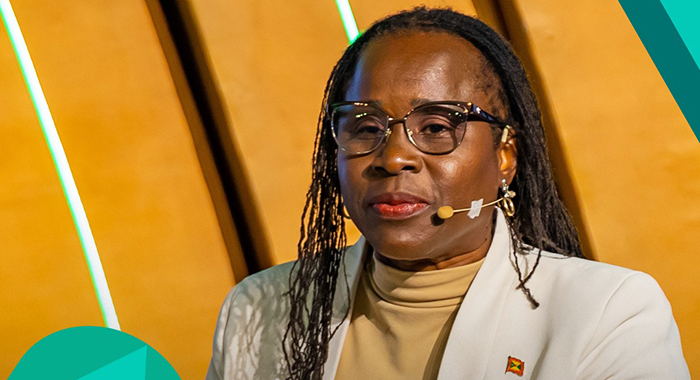
Joseph, who is also Grenada’s minister for legal affairs, labour and consumer affairs, said that the trip was her first to Africa, adding, “visiting the motherland is a distant dream, because our former colonial masters have set up the system so perfectly for them that even today we continue to abide the great triangle to get to Africa”.
The discussion was taking place at a time when Afreximbank is strengthening its expansion to the Caribbean, which began in 2022, with an initial limit of US$1.5 billion, which is set to double. The bank has so far approved more than US$700 million in loans and is preparing to build, in Barbados, where its regional office is located, its first Afreximbank Trade Centre outside of Africa.
Grenada is preparing to host on July 28 and 29, the Fourth Annual AfriCaribbean Trade and Investment Forum (ACTIF2025) and Joseph said CARICOM countries can derive much benefit from being part of the African Continental Free Trade Area (AfCFTA).
She noted that Afreximbank is piloting its Caribbean Payment and Settlement System (CAPSS), the regional version of its Pan-African Payments and Settlement System (PAPSS), which facilitates payments between countries that use different currencies, without the need for a third currency.
“And added to that, our regional investors have already begun to tap into the funds available through loans from the Afreximbank,” Joseph said, adding that the “next natural steps” will be for CARICOM members of Afreximbank to fully embrace AfCFTA and PAPSS.
“So within CARICOM, we are already inspired by the Afreximbank example, and are taking steps, as you can see, to deepen and further integrate our economic and cultural relationship with our brothers and sisters on the continent,” she said, noting that CAPSS could eliminate the need for corresponding banks in the UK and US for trade between Africa and the Caribbean.
The Grenadian attorney general said the US and UK impose many compliance requirements to maintain corresponding banking relationships, often shifting the goalpost as soon as the standard is met.
“And on a more granular level, I would say that embracing CAPSS will also help more people who are underserved to be able to enter into the realm of doing business and trading outside of the CARICOM region,” Joseph said.
“So, especially in this period where the environment, geopolitically, economically, is unstable, it’s uncertain, I would like to echo the words of former [Jamaica] Prime Minister Mr [PJ] Patterson earlier, when he said, we must move with haste to implement these measures and to begin trading more robustly with each other”.
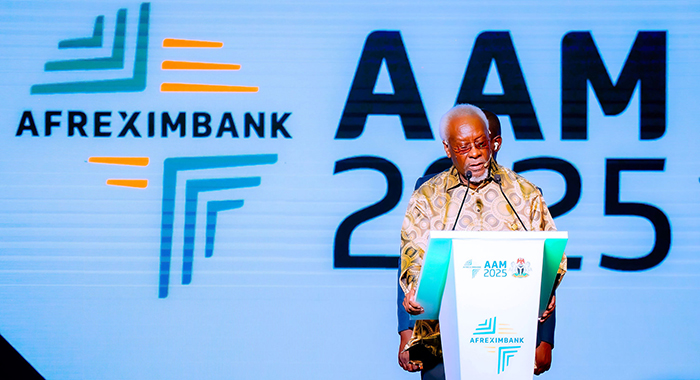
Patterson delivered the keynote ahead of the panel discussion, urging African and Caribbean leaders to recognise the opportunities for deeper cooperation provided by Afreximbank’s expansion into the Caribbean.
“The way I think about it is that we had the great triangle, which built the Europe we know today. That is what built Europe into first-world countries,” Joseph said.
“What we need to do as victims of the great triangle is to turn that misfortune into blessings for us. Cut off the top of the triangle and deal with the Middle Passage only — Africa and the Caribbean; cutting off the middle man, as it were.
“They have already shown us that this particular trade route is quite lucrative, and I say that that route belongs to us, Africa and the Caribbean, literally and figuratively; 13 million of our ancestors are lining the Atlantic seabed. That’s our space. That’s our property. Our ancestors are lying there. Let’s claim it and let’s do trade and business directly with each other.”
She, however, spoke of a need for legal and regulatory frameworks even as the regions seek to have direct trade and travel links, but said a legacy of colonialism could also help to address these.
“… there is another blessing that can come from our misfortune, because the colonialists left us, for the most part, with a common common-law legal system.
“So that makes it much easier for us to enact laws, harmonise laws, through which we can trade and do business with each other and build up each other,” Joseph said.
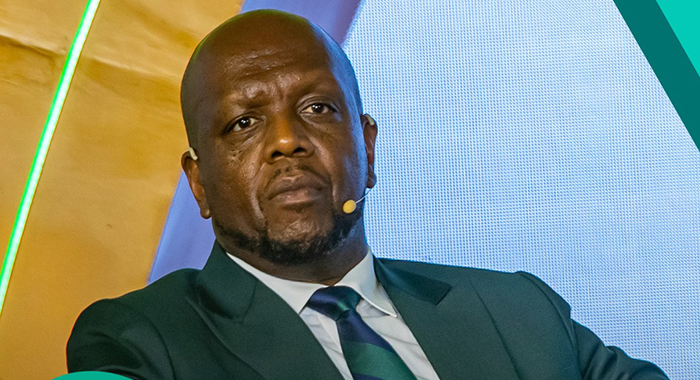
The CEO of the New York-based Africa Center, Ambassador Martin Kimani, speaking during the same panel discussion, acknowledged “the deeper bonds and the painful bonds that connect us”, adding, “so that when we discuss the technical aspects of cooperation, of investment and of trade, they rest on foundations of deeper understanding”.
Kimani said that to understand the stakes of the Afreximbank Caribbean initiative is to understand that it must be built on the deepest bonds of human connection.
“We cannot just build it on government, speaking to governments, though they are the critical backbone, but we have to have the Walter Rodneys, the Bob Marleys and the others of today who are doing similar work.”
Kimani said trade intelligence must rest on cultural intelligence, and cultural intelligence must rest on creativity and supporting creativity.
“The vision of this Caribbean initiative is a vision underpinned by Afreximbank’s diaspora strategy, and inside that strategy is a profound understanding of how people must connect on the level of culture and how that must be invested in. And if we do so, we will have the political and cultural basis on which to build prosperity.”
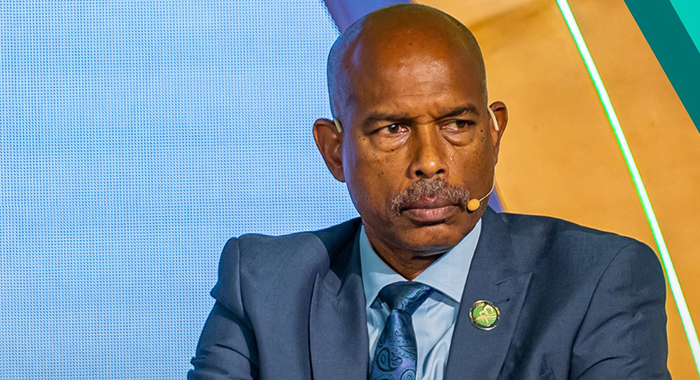
Meanwhile, CEO of the Barbados-based CARICOM Development Fund, Rodinald Soomer, commented that as Afreximbank advances its partnership with the Caribbean, “there’s a huge opportunity for us to develop a strong tourism business cluster that links the major players that have an interest in investing and facilitating visits between the two regions”.
He said CAPSS could be leveraged to set up a network among tourism businesses that would help us to drive demand, adding that many airlines “are aggressive on the supply side”.
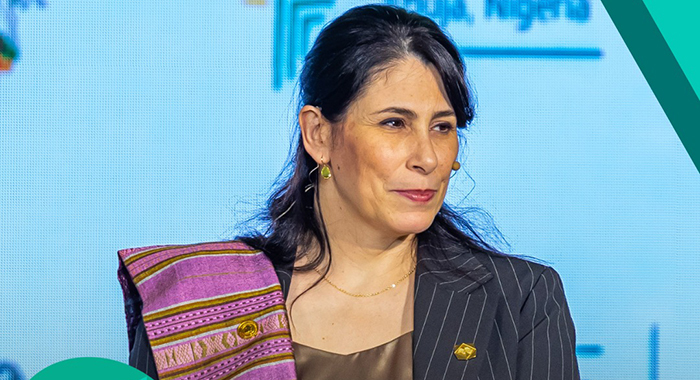
Afreximbank’s outreach to the Caribbean comes as the African Union has declared the continent’s diaspora as its sixth region.
Selma Malika Haddadi, deputy chairperson of the African Union Commission, quoted “Agenda 2063″, Africa’s blueprint and master plan for transforming Africa into the global powerhouse of the future, which was adopted in 2013 to guide the development of the continent over the next 50 years.
The opening paragraph of Agenda 2063 states: “We, the people of Africa and her Diaspora, united in diversity, young and old, men and women, girls and boys from all walks of life, deeply conscious of history, express our deep appreciation to all generations of Pan-Africanists. In particular, to the founders of the Organisation of African Unity for having bequeathed us an Africa with exemplary successes in the fight against slavery, colonialism and apartheid.”
Haddadi said Agenda 2063, rooted in pan-Africanism and African Renaissance, provides a robust framework for addressing past injustices and the realisation of the 21st century as the African century.
“I think that this agenda sets the tone and it is the most appropriate start for this conversation, this very, very important conversation that talks about Africa, the Caribbean and the sixth region of the African Union,” she said.
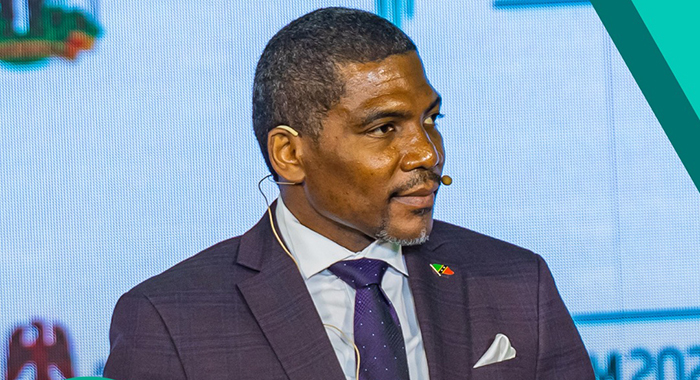
However, St. Kitts and Nevis Prime Minister, Dr. Terrance Drew, pointed out the ways in which his twin-island federation has moved ties with Africa beyond mere discussion.
Drew said trade between the Caribbean and Africa is one of the lowest in the world, “which means that there’s a great opportunity to expand it.
“I want us to convert that triangular trade into what I will call an Atlantic Bridge Initiative,” said Drew, who delivered the opening keynote at the official opening of AAM2025 on Wednesday.
“It was a triangular trade for destruction, but we want to convert it now into an Atlantic bridge for our benefit.”
He said that with the support of Afreximbank, in addition to integrating the financial systems in the Caribbean and Africa, cultural exchanges are critically important.
“These allow artistes, scholars, youths to circulate knowledge and creativity about ourselves,” he said, noting that earlier in June, there was an historic direct flight from Nigeria to St. Kitts and Nevis.

“So already we are seeing the tangible impact of what this would cause,” Drew said and announced that his government has started to look at universities in Africa.
“We never really did before,” he said, adding that his government has an agreement with the University of Tanzania to help educate teachers in St. Kitts and Nevis.
The government has also contacted Kenya for Kenya’s vocational school to leverage their platforms to educate Kittian youths who are interested in the vocational areas in St. Kitts and Nevis.
That was signed, I think, maybe a week ago. So yes, we are moving quickly ahead. But I just wanted to point out that to show that this relationship that has now become more profound, between the African continent and the Caribbean, is already reaping tangible benefits,” Drew said.
“Therefore, I encourage all of us to do our part in whatever area we are, to make sure that this goes to where our people always wanted it: an integrated people working for itself, for the benefit of all.”

Tinubu had also earlier noted that in terms of economic history, colonialism did not start because countries wanted to take over other countries.
“Trade created the logic for Europeans to come into Africa, trade with Africa, and when they found that trade so lucrative, they decided to seize those countries, and then the slave trade became the next thing after goods and services were shipped,” the businessman said.
“And, eventually, having taken advantage of the situation, they thought, ‘Why not take over the countries militarily and completely exploit their resources? Since then, we’ve seen trade become the primary interest in global foreign policy and diplomacy,” Tinubu said.
“And you’ve had trade blocs like the EU get created. You had trade blocks in Asia get created and in the US.
“Now, finally, Africa has got its act together with the African Free Trade Zone by realising that without intra-African trade and one common market, we can’t really move the needle in terms of global development…
“We all know we should be doing business together, but we’ve had tons of excuses where we haven’t. And it is taking an institution started by the 52 African … countries, to create a Pan- African bank, to create Pan-African solutions, and invariably, institutional solutions and global solutions that will bring the diaspora back to where it all started from,” Tinubu said.
“If not for them, for example, I wouldn’t sit here, because I would never have gone to the Caribbean to go and do business. They took me there,” he added.






